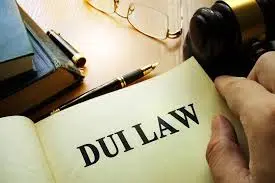1. Understand the Role of a DUI Lawyer
A DUI lawyer specializes in defending clients who have been charged with driving under the influence of alcohol or drugs. These lawyers are well-versed in DUI laws, legal defenses, and courtroom procedures. They can challenge the evidence against you, negotiate with prosecutors for reduced charges, or even have the case dismissed if there is no strong evidence.
Their primary job is to protect your rights, ensuring that you get a fair trial and the best possible outcome, whether it's through a plea bargain, reduced charges, or a verdict of not guilty.
2. Look for Specialized Experience
When searching for a DUI lawyer, experience matters. DUI cases can be complex, and a lawyer who specializes in DUI defense will have the necessary experience to navigate the intricacies of DUI laws. Many criminal lawyers may take on DUI cases, but you should prioritize lawyers who focus on DUI defense specifically.
A specialized DUI lawyer will be up-to-date on the latest legal precedents, scientific developments regarding sobriety tests, and best defense strategies. They’ll be well aware of the strategies that can effectively challenge breathalyzer tests, field sobriety tests, or the validity of the traffic stop itself.
3. Check Reviews and Reputation
A good reputation is essential when hiring a DUI lawyer. Start by looking for reviews and testimonials from former clients. Online platforms such as Google, Avvo, and Yelp provide valuable insight into the experiences of others who have faced similar charges.
In addition to online reviews, ask around for recommendations. A friend, family member, or colleague who has been through a DUI case may know a reputable attorney. Don’t hesitate to ask for references directly from the lawyer to get a better sense of their capabilities.
4. Schedule a Consultation
Before committing to a lawyer, schedule an initial consultation. Many DUI lawyers offer free consultations, during which they can evaluate the details of your case and offer an initial assessment. This is an excellent opportunity to ask the lawyer about their experience, approach to DUI cases, and track record of success.
During this meeting, inquire about the potential outcomes of your case, the costs involved, and how often you can expect updates on your case's progress. A good lawyer should be transparent about their fees and not make unrealistic promises.
5. Consider the Lawyer’s Communication Skills
A DUI lawyer who is responsive and communicative is essential. You need an attorney who will keep you informed about developments in your case and answer any questions or concerns promptly. If a lawyer is difficult to get ahold of during the consultation, they may not provide the level of attention your case needs.
Look for a lawyer who listens carefully to your situation, offers clear advice, and communicates in a way that is easy to understand. A lawyer who takes the time to explain the legal process and your options will put you at ease during what can be a stressful time.
6. Understand the Lawyer’s Fee Structure
DUI lawyers typically charge in one of two ways: flat fees or hourly rates. Flat fees are common for simple DUI cases, whereas more complex cases or those requiring multiple court appearances may involve hourly rates. Make sure you understand the fee structure upfront.
While you should not base your decision solely on cost, it is important to find a lawyer whose fees fit within your budget. If the lawyer offers a flat fee, inquire about whether additional costs (such as court fees, expert witness fees, or investigation costs) are included or if they will be charged separately.
7. Evaluate the Lawyer’s Trial Experience
While many DUI cases are settled out of court through plea bargains, some may go to trial. It’s crucial to hire a DUI lawyer who has trial experience, as not all lawyers are comfortable in a courtroom setting. A lawyer with solid trial experience is more likely to be prepared and confident if your case ends up in front of a judge and jury.
Ask about the lawyer’s trial record, including their success rate in DUI cases. A lawyer who is experienced in handling trials may also be able to negotiate a better deal during pre-trial discussions with the prosecutor.
8. Trust Your Instincts
Ultimately, trust your instincts when selecting a DUI lawyer. If you feel comfortable with the lawyer’s approach, communication style, and professionalism, they may be the right fit for your case. Don’t feel pressured to make a quick decision; take the time to meet with several lawyers and choose the one who makes you feel confident in their ability to represent you.
Conclusion
Hiring the right DUI lawyer is crucial to securing a favorable outcome in your case. By focusing on specialized experience, reputation, communication skills, and trial expertise, you can make a well-informed decision when choosing your legal representation. A good DUI lawyer will offer guidance and support throughout the process, helping you navigate the challenges of a DUI charge and work towards the best possible resolution for your situation.

